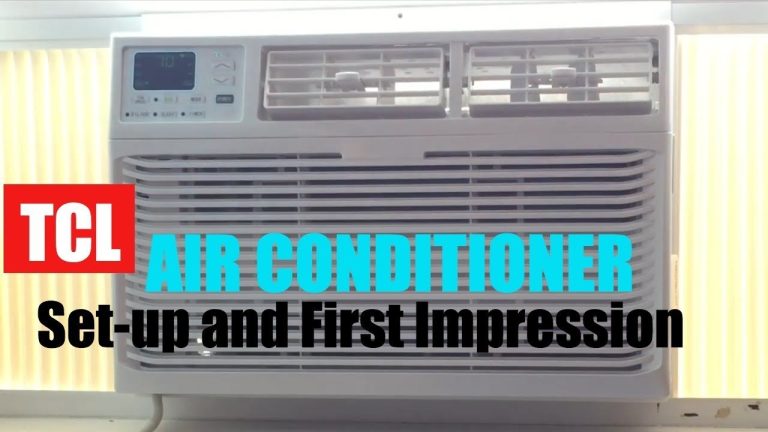Can Air Conditioning Be Poisonous? Discover The Truth About Potential Health Risks
No, air conditioning itself is not poisonous. However, if not properly maintained or used, air conditioning units can contribute to poor indoor air quality, leading to health issues. Mold, bacteria, or allergens that can accumulate in dirty air conditioning units may cause respiratory problems or exacerbate existing conditions. Regular cleaning and maintenance are important to ensure healthy air quality.
Air conditioning has become a staple in many homes and offices, providing relief from sweltering heat and creating a comfortable environment. But have you ever stopped to consider the potential risks of prolonged exposure to air conditioning? Surprisingly, air conditioning systems can pose a threat to our health.
As concern about indoor air quality continues to grow, it is crucial to understand the potential dangers associated with air conditioning. While it may seem counterintuitive, these cooling devices can actually contribute to indoor air pollution, leading to a range of health issues.
Indoor air can be contaminated with various toxins, including volatile organic compounds (VOCs) and particulate matter. When air conditioning systems are not properly maintained, they can become breeding grounds for mold, allergens, and bacteria, which are then circulated throughout the space. This can have detrimental effects on our respiratory system, exacerbating allergies, triggering asthma attacks, and even leading to respiratory infections.
Furthermore, the constant exposure to dry, artificially cooled air can cause our mucous membranes to dry out, making us more susceptible to respiratory infections and irritation. In fact, studies have shown that individuals who spend long hours in heavily air-conditioned environments are more likely to experience symptoms such as dry cough, sore throat, and even fatigue. Understanding the potential risks associated with air conditioning is essential for ensuring our well-being and making informed decisions about our indoor environment.
The Hidden Dangers of Air Conditioning
1. Indoor Air Pollution: A Silent Threat
While air conditioning systems are designed to provide cool and comfortable indoor environments, they can inadvertently contribute to indoor air pollution. This silent threat arises from the improper maintenance and operation of these systems.
Indoor air can be contaminated with volatile organic compounds (VOCs), particulate matter, and other harmful substances. When air conditioning units are not adequately cleaned or their filters are not replaced regularly, these pollutants can accumulate and spread throughout the space.
Exposure to indoor air pollution can lead to a myriad of health issues, including respiratory problems, allergies, and skin irritations. It is crucial to recognize the potential dangers associated with poor air quality and take appropriate measures to mitigate them.
2. Mold and Bacteria Growth
One of the major concerns with air conditioning systems is the growth of mold and bacteria. When the moisture in the air combines with organic matter, such as dust or dirt, it creates an ideal breeding ground for these microorganisms.
If the air conditioning unit is not cleaned and maintained regularly, the mold and bacteria can thrive and spread. These microorganisms can then be circulated throughout the space, posing a significant health risk to the occupants.
Exposure to mold and bacteria can trigger allergies, cause respiratory infections, and worsen existing respiratory conditions, such as asthma. It is crucial to address any signs of mold or bacterial growth promptly and ensure proper maintenance of air conditioning systems.
3. Dry Air and Respiratory Issues
While air conditioning provides relief from hot and humid weather, it can also lead to excessively dry air indoors. This can have detrimental effects on our respiratory system.
The dry air produced by air conditioning systems can cause our mucous membranes to dry out, making us more susceptible to respiratory infections and irritation. It can lead to symptoms such as dry cough, sore throat, and nasal congestion.
To mitigate the effects of dry air, it is important to maintain optimal humidity levels indoors. Using humidifiers or incorporating indoor plants can help add moisture to the air and alleviate respiratory issues associated with dry air.
4. Chemical Exposure and Sensitivities
Many air conditioning units contain refrigerants and other chemicals that can be harmful if released into the environment. Leakage or improper handling of these substances can lead to chemical exposure and pose health risks.
Furthermore, individuals with chemical sensitivities may experience adverse reactions when exposed to certain components of air conditioning systems. These reactions can range from mild discomfort to more severe symptoms, depending on the level of sensitivity.
It is important to be aware of any chemical sensitivities or allergies when using air conditioning systems. Regular maintenance, proper ventilation, and the use of air purifiers can help minimize the risks associated with chemical exposure.
5. Energy Consumption and Environmental Impact
Air conditioning systems are notorious for their high energy consumption, which not only translates to higher utility bills but also has a significant environmental impact.
The excessive use of air conditioners contributes to increased greenhouse gas emissions and exacerbates the issue of climate change. It is important to use air conditioning judiciously, opt for energy-efficient models, and explore alternative cooling methods to reduce both energy consumption and environmental impact.
6. Tips for Safer Air Conditioning Usage
While air conditioning systems come with potential risks, there are steps you can take to ensure safer usage and minimize the associated dangers:
- Regularly clean and maintain your air conditioning unit to prevent mold and bacteria growth.
- Replace filters as recommended by the manufacturer to maintain optimal air quality.
- Monitor humidity levels indoors and use humidifiers if necessary to combat dry air.
- Ensure proper ventilation to reduce the concentration of indoor air pollutants.
- Consider using air purifiers to filter out pollutants and improve indoor air quality.
- Use energy-efficient air conditioning models and regulate temperature settings to conserve energy.
- Explore alternative cooling methods, such as fans or natural ventilation, whenever possible.
By following these tips, you can enjoy the benefits of air conditioning while minimizing the potential health risks and environmental impact.
HOW TO PROPERLY REMOVE THE POISON FROM ALOE VERA/NO ITCHING AND NO FLAKES
Frequently Asked Questions (FAQ)
Can air conditioning be poisonous?
Is it safe to sleep in a room with the air conditioner on?
Can air conditioning cause headaches?
Can air conditioning make you sick?
How often should I clean my air conditioning system?
Conclusion: Ensuring Safe and Sustainable Air Conditioning Usage
In conclusion, while air conditioning provides relief from hot and humid weather, it also comes with hidden dangers that can affect our health and the environment. Improper maintenance and operation of air conditioning systems can lead to indoor air pollution, mold and bacteria growth, dry air, chemical exposure, and high energy consumption.
These issues can result in a range of health problems, from respiratory infections and allergies to sensitivities and sensitivities to chemicals. Additionally, excessive energy consumption contributes to greenhouse gas emissions and worsens climate change.
To ensure safer air conditioning usage, it is essential to regularly clean and maintain the unit, replace filters as recommended, monitor humidity levels, ensure proper ventilation, consider using air purifiers, opt for energy-efficient models, and explore alternative cooling methods when possible. By following these tips, you can enjoy the benefits of air conditioning while minimizing the potential health risks and environmental impact. It is crucial to be aware of the potential dangers associated with air conditioning systems and take appropriate measures to mitigate them.
By prioritizing maintenance and proper operation, you can ensure that your indoor air quality is clean and healthy. Remember to monitor humidity levels and use humidifiers if necessary to combat dry air, and consider using air purifiers to filter out pollutants. Additionally, using energy-efficient models and exploring alternative cooling methods can help reduce energy consumption and minimize your environmental impact.






